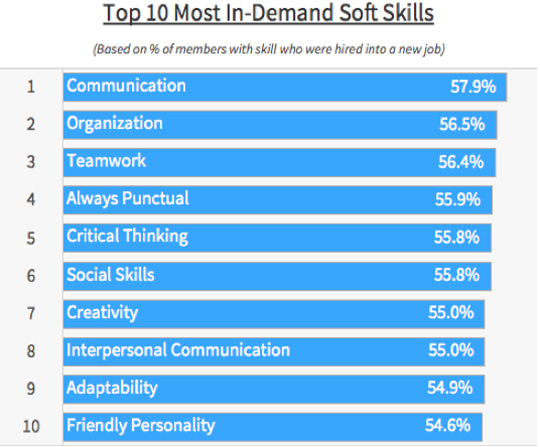Critical thinking, communication, collaboration, and creativity comprise what we call the 4Cs. These skills also fall into the “soft skills” and social and emotional learning (SEL) categories, but realistically, the label doesn’t matter. What matters is that students acquire, improve, and embrace these skills as they grow, so they feel prepared for college and their career. Our district employs a number of strategies to help students hone these skills and recently, I watched two classrooms full of students strut their stuff in Grow Time and Genius Hour where soft skills have a front row seat.
Grow Time
Grow Time began at one of our elementary buildings and has since spread to our other buildings. In Grow Time, students explore a topic in which they are passionate and can work alone or with a partner for twenty minutes every day, culminating into a presentation for the class. I knew this was happening but hadn’t seen it in action, so while making rounds at Sherwood Elementary, I ran into Donna Prues, a second-grade teacher. Her students happened to be working on their Grow Time projects. We talked for a bit, and she invited me back to watch their presentations! A couple of weeks later, I nestled into a seat watching second-grade students proudly make their way to the front of the room, bringing up their presentation, and showcasing what they learned about their topic. The topics ranged from “How to be the best student in school?” to “What is Cinco de Mayo?” By presenting to the class, students became more proficient in public speaking, helped their classmates learn more about their particular topic, and received feedback from their peers to help them improve in the future.
Genius Hour
In the high school, I watched Advanced Placement (AP) students in Krista Willertz’s class, present TED Talks on topics of meaning to them that are considered “ungoogleable.” The significance of Krista’s class participating in this activity isn’t only the soft skill acquisition but that she teaches an AP course. We’ve learned from talking to high performing students that they are driven to perform, achieve fives on the Advanced Placement exam, and strive for the grade point average and class rank, spending minimal time considering how they can improve their speaking, collaboration, critical thinking, and creativity. Krista understands the importance of these skills, particularly for this group of students and includes it in her class which is clearly reflected in her rubric for their culminating TED Talk where she assesses students on creativity, time management, quality research, content flow, graphics, multimedia structure, professionalism, and comfort presenting to the class. I can attest the students enjoyed their topics, provided quality information, and shared their personal interests with the class.
Why soft skills matter?
According to a LinkedIn survey of 291 hiring managers in the US, 59% of them believe that soft skills are difficult to find. Encouraging students to organize their ideas collaboratively and communicate what they’ve learned in a creative way, as Forest Hills’ students are in Grow Time and Genius Hour, meets almost half of the Top 10 Most In-Demand Soft Skills that employers are seeking. These skills do not have a place on the standardized test (yet) but prove invaluable to future employers and are worth continuing and expanding.


